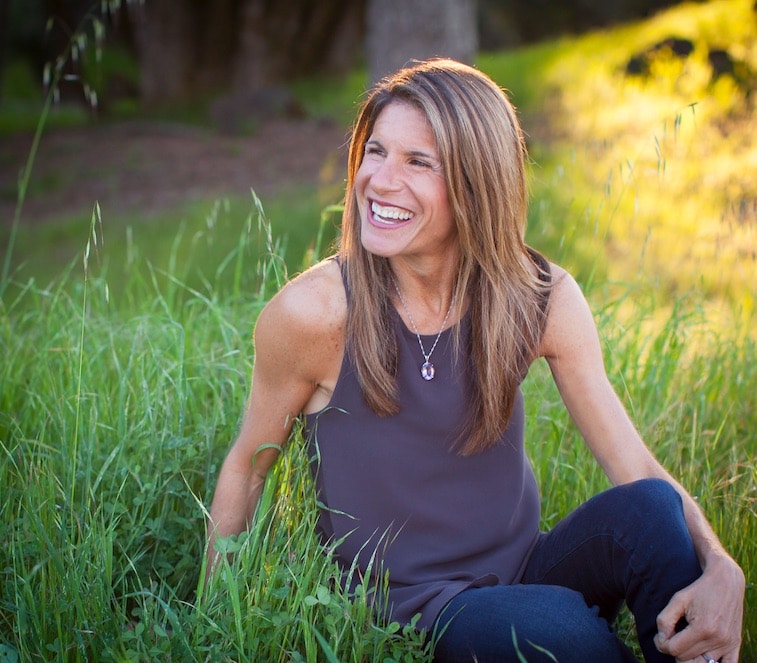
Sheryl O’Loughlin, CEO of REBBL. Photo by Sarah Marcella Photography.
BY PAKSY PLACKIS-CHENG
Sheryl O’Loughlin is Killing It!
Sheryl O’Loughlin, former CEO of Clif Bar, spearheaded the launch of Luna Bar and (with Neil Grimmer) co-founded Plum Organics, a healthy food company for babies and kids. Plum Organics is a pioneer as it stands as the first B Corp (social and sustainable businesses) sold to a public company, Campbell’s Soup Company in 2013.
The pressure of building Plum while her husband’s startup collapsed led her to take time away to face her personal demons.
Last year, she returned as the CEO of REBBL, a nutritional, supplemental tonic supporting daily health. During this time Sheryl authored her first book, Killing it! (Harper Collins, 2017), which gives a first hand account of the ups and downs in the startup world and redefines the traditional investor and entrepreneur relationship.
impactmania met Sheryl in Midtown, New York where she shared one of the most important pieces of advice for investors and entrepreneurs. She spoke about self-worth, about the person who left an imprint on her professional DNA, and offers up three things that creates magic in a company.
Sheryl, you were the CEO of Clif Bar; co-founder of Plum Organics; and now the CEO of REBBL. What has been a surprising learning in running these three companies?
One learning is how hard it is. How hard the demands are that hit you physically and psychologically. As entrepreneurs, you’ll experience ups and downs 20 times a day. When the product comes out the manufacturing line for the first time or when I see somebody in the street holding REBBL, this is what brings such thrill and joy. That’s why we are doing this, right?
Then there are the downs of product and manufacturing issues, employee issues, and investors who tell you they’re going to invest, and yet they never return your call.
Give me an example of a hurdle you faced and how you overcame it.
I was with Plum, when my husband, Patrick, decided to start a company, Blue Sky, a family owned business. It was an indoor play space where kids could be creative, have physical exercise, and eat healthy food. Parents could relax with a glass of wine or beer. Every parent drooled over the concept.
Then, I will always remember this day, my husband came home white as a ghost, and literally cold to the touch. I kept asking him, “What’s wrong?” He said later, “I knew the moment I said something it would change our lives.” And it did.
We lost everything we had and the company’s funding was due. We had so much debt; we almost went into personal bankruptcy. We had to move out of our house immediately and just last year, eight years after we closed the door on Blue Sky, we finished the last of the small business loan.
I was trying to run Plum from scratch, going through the company’s ups and downs, while Patrick became depressed. Every morning he would wake and tell me that he didn’t want me to leave for work, but I had to go. Our boys were eight and five at the time and everything was a worry from, “Did I remember to pack the boys their lunches?” to what was happening with our personal stress. We thought to ourselves, “We’re MBAs, we have so much work experience, and Blue Sky still didn’t make it?” How I coped with the results wasn’t the right way. From this I have learned to cope a lot differently.
With the personal upheaval and the stress of running Plum Organics, you developed an eating disorder. Now, you’re back as the CEO of REBBL. What are some of the things that you do to make sure that those demons remain at bay?
Yeah, I appreciate you bringing up the word demons because my eating disorder, my anorexia, was my demon but there are so many demons that entrepreneurs face. There’s the light and the dark. The light is that we’re persistent and dedicated; we can break through walls to make things happen. We believe and see things that others don’t see, but there’s a dark side to the same traits. There’s a correlation between entrepreneurship and depression. This came out of a study by Dr. Michael Freeman who found a correlation between entrepreneurs, bipolar disease, and ADHD.
What I learned to keep the darkness at bay and how I learned to apply it is as follows: First we’ve got to separate our self-worth from the worth of the company. For entrepreneurs, it’s really hard, because this is our art. It’s our art on a page. A lot of times our entire net worth is wrapped up in it. Investors are counting on us and if we see our P&L [profit and loss] go down, we feel it says something about us — that we’re failures.
We are not the sum of our balance sheet. We are not equal to the title on our business card. We are so much more than that. We have families. We have friends. We have the passions outside of our work that will go on way beyond whether a company survives or not. We need to have a different perspective on entrepreneurship. Many people define it by, “Did we have financial success?” The people in our lives that deeply care about us — they don’t care about our companies — they care about what happens to us. My husband and I realized this at Blue Sky, 95 percent of companies fail.
I’ve learned that entrepreneurship is an epic adventure, a wild ride that so many people never have the courage to start. Whatever the financial end, we came out of it having experienced something we would never have had the chance to experience otherwise. Having that perspective on our self worth and the company is essential to our own health, and the health of the company and the people within it.
What is an entrepreneur to do when they find themselves in a personal crisis while owing investors money and their employees paychecks? How do you take another inch forward?
Well, you said it really well in terms of inching forward. One of the things that I’ve learned with the Blue Sky situation and in my recovery from anorexia is taking it step by step. Almost not thinking too far ahead, because too far ahead can be daunting. “What can I do at this moment to move myself forward? What can I do at this moment that’s going to have a little bit of difference in the company?”
At REBBL we went through some manufacturing problems last year and we were not happy with how the product tasted. The taste is so essential to us. It felt so daunting, would we ever be able to get through this? We took the next step, we said, “Get on the phone together and ask why this is happening with our product?” In each moment, we would learn something and then we would apply that learning. We applied more, and we kept learning until we met the solve.
A startup is a grand experiment. I love from Steve Blank who developed the Customer Development method that launched the Lean Startup movement. One of the things he said is that a startup is not a company; a startup is an experiment waiting to find a sustainable, valuable business model.
It’s an experiment. With any experiment, as any scientist knows, you start with your hypotheses. Some of them will play out and some of them won’t. Learning along the way what does and doesn’t, that is all part of it.
With the manufacturing issues that we went through, we came out the other side with an even better product than we had before. We learned so much about this organic product that is pure to the core, that doesn’t have any thickeners, or stabilizers, or even unnatural flavors in it. It is the pure goodness of the plant kingdom, but that takes a lot of courage to do, because some of it’s never been tried before. It’s the learning that gets us through, hard times, it’s all a part of it. We all go through it; and yet so many people won’t talk about it.
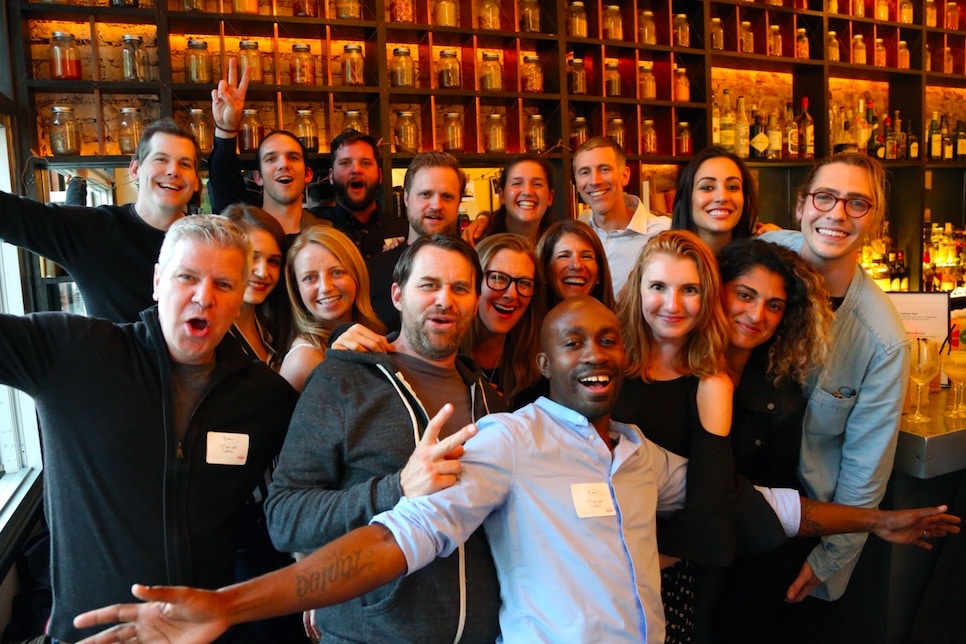
Magic: the REBBL Team! Photo Courtesy REBBL.
In a previous interview you mentioned, “I saw the magic” while you served on the REBBL board. It was similar to the magic that the other companies you ran before had. Define magic.
To me, it’s three things: it’s the product or the brand, it’s the purpose, and it’s the people. Palo Hawken, REBBL’s Founder and Chief Innovation Officer, is an artist. He creates our product out of art and a true appreciation and love of — not out — of science.
REBBL stands for roots, extracts, bark, berries and leaves. It is a coconut milk-based drink made from the goodness of the plant kingdom. Every product tastes exquisite and it’s the doorway to bringing people into the world of plants. Our product offers a pathway to understanding and loving organic, regenerative agriculture, and the herbs that are part of the experience.
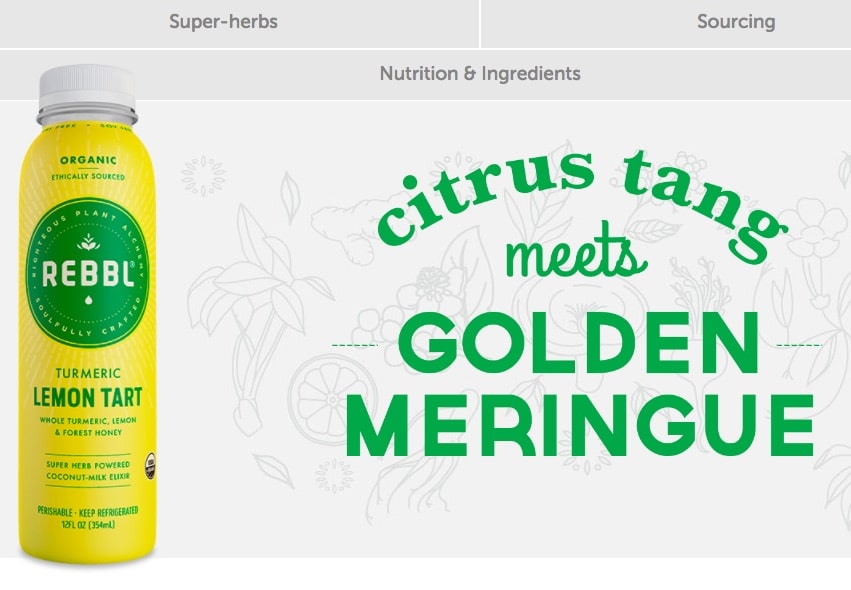
REBBL Tumeric from the REBBL website.
Whether it is turmeric, which has anti-inflammatory properties or herbs like maca, which has been used to build stamina for over a millennia, the plant kingdom offers much for our modern bodies to draw upon. We are just now finding through clinical research how much plants and herbs adapt your body to help you deal with stress. If you’re too stressed, it will calm you down. If you’re under stress, it will give you energy.
The purpose we care so deeply about: REBBL was started by a nonprofit called Not For Sale. The collective goal is to eradicate modern day human trafficking and to this day we give 2.5 percent of our net sales to help Not For Sale rehabilitate people who have been trafficked. Today, trafficking in the slave trade and sex trade impacts 21 million people and growing everyday. Approximately 45.8 million people today are living in slave-like conditions.
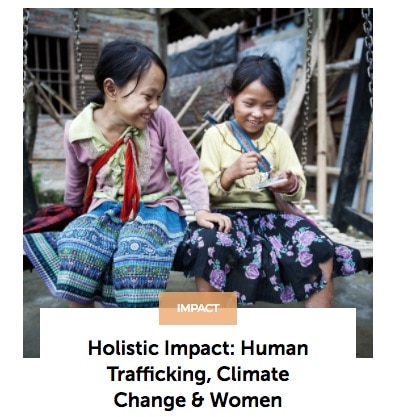
Photo from the REBBL website: 2.5 percent of REBBL’s net sales goes toward the organization Not For Sale.
This is a huge problem; it is the largest-growing illegal industry in the world, and stands second largest behind the drug trade. It impacts 80 percent of women and girls. We buy ingredients from around the world. In our work with our growers we make sure they are nurturing the livelihood of the people in it. The focus is also on making sure they’re regenerating the planet around them so they have a healthy environment to work within, grow, and thrive.
This is what helps people to never be vulnerable to trafficking to begin with. Having this purpose behind our company drives us every single day. It is this global team that cares so passionately and has so much grit. We’re hiring world-class people that know how to build companies and have unbelievable amounts of endless creative courage.
We follow this even with our investors, because I learned through some hard times how to choose the right investors and board members.
What is your approach in managing the investor and entrepreneur relationship?
As I sit here and talk about being vulnerable, I do the same thing with my investors. We are out together, to change the way people think about the investor and entrepreneur’s relationship. It doesn’t have to be hard. What it should be is truly supportive because that’s what is going to make the company great.
Just the other day on the phone I said to one of my investors, “I want to be honest with you, the company is going so incredibly well right now. I have some fear that the next shoe is going to drop, because we know it will.” He said, “Sheryl, I recently started my own fund. I have never started a fund before, I don’t know if I have giving you the time and support that you need — think about that.” That kind of relationship changes the face of the company.
If you would have to name one or two people who have left an imprint on your professional DNA, and the way you operate as an entrepreneur, who would that be?
I’d say it’s my mom. I was raised by a single mom, my father died when I was six. I had to be strong because we were both really young; she was left with three kids to raise. I was six, my middle brother was four, and the youngest was two.
I saw this strength that she had, the steps she took to be able to get out of this horrible situation, and restore life again. For me being the oldest of three, I learned how to be strong from when I was young. I had to relearn that many times.
Is there anything that she has said that stays with you?
Wow, what a great question…”I love you.” These are the most powerful words someone can say. By the way, it’s my 20th anniversary with my husband today. It’s bringing me to tears that I’m not with him today. And the love with my boys, that’s everything. It’s amazing what you have been through as a family. Yeah, and we’re stronger. You either come out on the other side having it come to an end or it continues to be stronger than ever.
Recently REBBL raised $14 million in funds. I don’t think I’ve interviewed anyone before who has raised a Series D venture round! What’s next for the company?
We had a lot of friends and family [fundraising round] in the beginning. It’s the second institutional round. We are growing this baby, bringing in some of the best leaders. I’m so excited about our executive leadership team that we’ve built with incredible people and amazing experience. Some guys over at Coke said most beverage companies don’t even make it past the level that we’re at. We just got into Whole Foods nationally and are starting to put our feet out into the conventional grocery channel. We have a lot of work cut out for us, but we’re all so totally stoked, that it makes it fun.
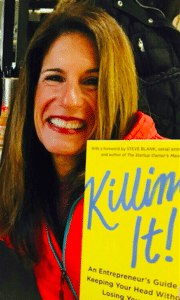
Sheryl O’Loughlin on the day of the interview in New York, NY.
For you personally, what’s next?
Well, making sure I keep time for my family, that I never lose touch with them and with my friends, that’s deeply important to me. And bringing out the message of this book, so that entrepreneurs hear about both the light and the dark, when they typically only hear about the light. I assume that’s because we’re in a culture that is all about traditional success. We’ve got to understand what is involved; this is how entrepreneurs are going to be healthy.
At the end of the day, our personal health is absolutely essential to the health of the company. Investors need to understand that a company is made of living human beings. We need to understand how we nurture a team. I want to change the conversation that we’re having around this so we can all come out being healthier and unbelievably better at work.

